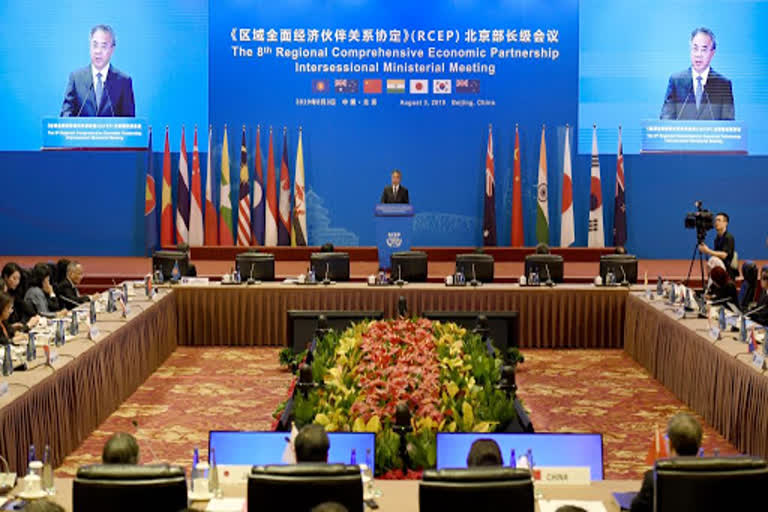New Delhi: Several challenges in both goods and services sectors still persist and need to be resolved before reaching the conclusion of negotiations of the proposed mega free-trade agreement RCEP, an official said.
The 16-member RCEP (Regional Comprehensive Economic Partnership) bloc has targeted to conclude the negotiations by November this year.
The official said the major challenges in front of India include widening trade deficit with member countries, such as China, and disproportionate loss in customs revenue due to elimination or significant reduction in import duties.
The country is not satisfied with offers on the table in both goods and services under the RCEP negotiations, the official added.
Read more: Finance Minister's meeting with PSU Banks CEOs postponed
India wants a commitment to the free movement of professionals to RCEP countries, including China, as domestic information technology firms currently face challenges in entering the neighbouring market.
According to another official, import duty cuts under the agreement could lead to further worsening of the trade deficit of India with RCEP from the current level of USD 105.2 billion.
India has registered trade deficit in 2018-19 with as many as 11 RCEP member countries, including China, South Korea and Australia, out of the grouping of 16 nations that are negotiating a mega trade pact since November 2012.
Further, in a comprehensive stakeholder consultation on the pact, several sectors including dairy, metals, marine products, electronics, chemicals, pharmaceuticals, plastics and textiles have registered reservation on the proposed agreement.
Currently, trade ministers are meeting in Beijing to take stock of the negotiations. Commerce Secretary Anup Wadhawan is representing India as Commerce Minister Piyush Goyal cancelled his visit.
The 27th round of negotiations at the chief negotiator level was just concluded at Zheng Zhou in China.
RCEP bloc includes the 10 ASEAN members (Brunei, Cambodia, Indonesia, Laos, Malaysia, Myanmar, the Philippines, Singapore, Thailand, and Vietnam) and Australia, China, India, Japan, Korea and New Zealand.
The agreement aims to cover issues related to goods, services, investments, economic and technical cooperation, competition and intellectual property rights.
In the merchandise sector, all the countries want India to eliminate customs duties on a maximum number of goods as the country's huge domestic market provides an immense opportunity for exports. But, the domestic industry has raised serious concerns over the presence of China in the grouping.
India trades in over 11,500 products. Certain sensitive sectors such as agriculture are mostly kept out of the purview of such agreements to protect the interest of farmers.
Experts have mixed views over the impact of this pact on India. Biswajit Dhar, professor of economics at Jawaharlal Nehru University, has said that free trade pacts are not about only giving market access, but also getting that access in other countries.
India is looking for a balanced trade agreement as it would cover 40 per cent of the global GDP and over 42 per cent of the world's population.



